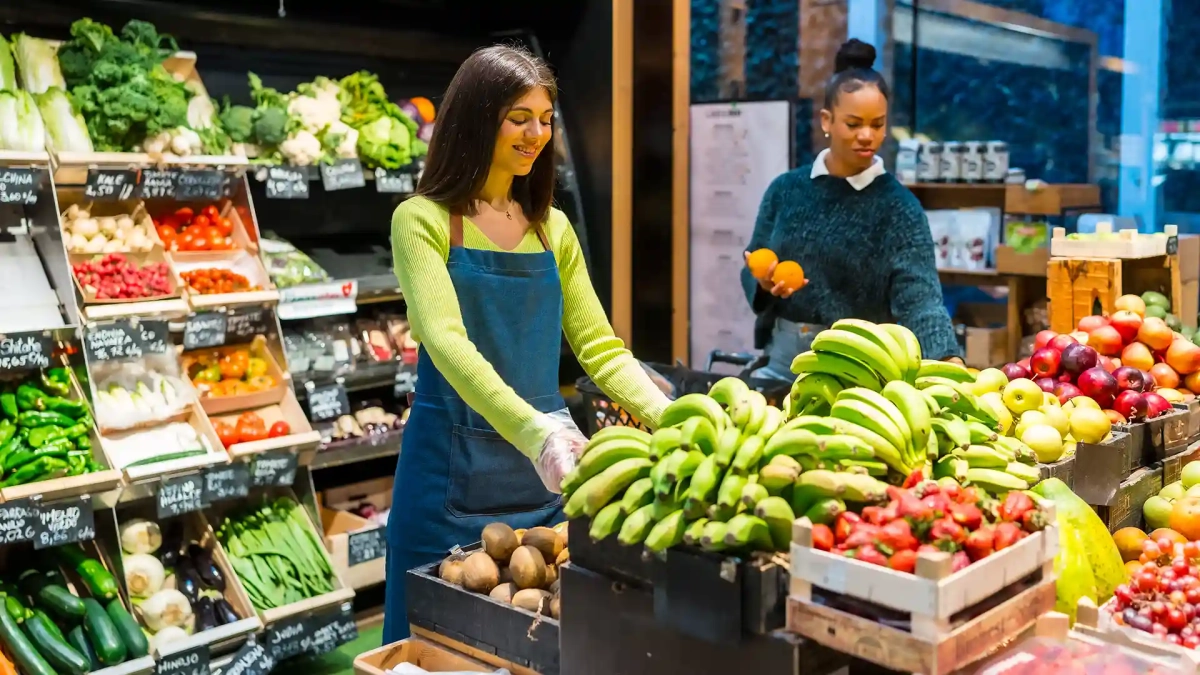Groceries in Berlin: Where to Shop and How to Save Money
Berlin is a city of contrasts, and that extends to its grocery scene. Whether you’re a student living on a budget, a professional looking for convenience, or a family aiming for organic and fresh produce, grocery shopping in Berlin can be both affordable and overwhelming—depending on where you shop and how you shop. Prices can vary dramatically from store to store, and many expats are surprised by the range of options, each with its own shopping culture, quality expectations, and price points.
This short guide breaks down everything you need to know about buying groceries in Berlin—from understanding supermarket tiers to discovering budget-saving strategies.
Types of Supermarkets in Berlin
Berlin’s supermarkets can generally be categorized into three tiers: discount chains, standard supermarkets, and premium or organic-focused retailers. Each offers a different shopping experience, product range, and price level.
Discount Supermarkets in Berlin
If you’re focused on value for money, these are your go-to options:
- Aldi: Known for no-frills shopping, Aldi offers basic groceries at some of the lowest prices in Berlin. Most locations stock fresh produce, meat, dairy, household goods, and even weekly non-food specials like electronics or home tools.
- Lidl: Slightly more modern than Aldi, Lidl has invested in better store layouts and expanded its product range to include more organic and international foods. It still maintains competitive pricing, especially for staples like bread, milk, and canned goods.
- Netto: There are two Nettos—Netto Marken-Discount and Netto (with the dog logo). The former is more common and offers basic groceries at very low prices, though store ambiance and product quality can vary by location.
- Penny: Owned by the REWE group, Penny serves as a discount chain offering essential groceries with slightly more brand variety than Aldi.
These stores are ideal for students and anyone looking to reduce grocery costs without compromising on basic needs.
Mid-Range Supermarkets in Berlin
- REWE: One of the most popular supermarket chains in Germany, REWE strikes a balance between variety, quality, and price. It’s more expensive than discount chains but often better stocked and more customer-friendly. REWE is also known for its reliable delivery service, REWE Lieferservice, which many expats use.
- Edeka: Slightly more upscale than REWE, Edeka is popular for its fresh produce, high-quality meats, and large selection of international items. Prices are higher, but so is the attention to layout, branding, and customer service.
- Kaufland: A hypermarket-style store with wide aisles and bulk-buy opportunities. Kaufland is excellent for weekly shopping, especially for families, as it offers good deals on large quantities.
Organic and Specialty Stores
- Bio Company: This is Berlin’s most well-known organic grocery chain. Expect to pay a premium here, but you’ll find certified organic produce, vegan options, and eco-friendly household items.
- Alnatura: Similar to Bio Company but slightly more affordable. It focuses on bio-certified items and is a favorite among environmentally-conscious shoppers.
- Denn’s Biomarkt: With stores across Berlin, Denn’s offers organic alternatives to nearly all grocery categories. It’s ideal for those with dietary restrictions or who prioritize sustainable consumption.
Where to Buy Fresh Produce and Ethnic Foods
Turkish and Middle Eastern Markets
Neighborhoods like Neukölln, Wedding, and Kreuzberg are filled with independent Turkish and Middle Eastern grocery stores. These markets are often cheaper than supermarkets for fresh fruits, vegetables, herbs, and bulk rice or legumes. They’re open late—often until 10 PM—and provide a rich mix of international flavors.
Asian Supermarkets
If you’re looking for authentic Asian ingredients, Vinh Loi, Go Asia, and Asia Markt Lee are well-stocked. From fresh tofu to rare spices, these stores are the go-to spots for expats from East and Southeast Asia.
Weekly Farmers’ Markets
Berlin is full of Wochenmärkte (weekly markets) where local vendors sell fresh produce, cheese, meats, and handmade goods. Markets like Winterfeldtmarkt (Schöneberg) or Boxhagener Platz Markt (Friedrichshain) offer freshness and community vibes, though prices are often higher than supermarkets.
Grocery Delivery Services in Berlin
Grocery delivery has taken off in Berlin, especially post-pandemic. Here are the most commonly used services:
- REWE Lieferservice: Reliable and easy-to-use platform. Delivers most items found in REWE stores.
- Flink & Gorillas: Fast delivery services that promise groceries in under 20 minutes. Great for urgent needs, but prices and product range are limited.
- Amazon Fresh: Available to Prime members in Berlin, with a strong selection and efficient delivery system.
How to Save Money on Groceries in Berlin
Shop at Discount Chains First
Start your grocery shopping at Lidl, Aldi, or Netto for basic staples, then fill in specialty items at REWE, Edeka, or organic markets. This strategy avoids overpaying for everyday essentials.
Explore Turkish and Ethnic Stores
Fresh produce at Turkish markets is often 30–50% cheaper than in supermarkets. Buying herbs, lemons, peppers, and tomatoes from these shops can significantly lower your food costs.
Use Loyalty Programs and Coupons
- DeutschlandCard (used at Netto and Edeka)
- Payback (used at REWE and dm)
- Many stores offer digital apps with weekly coupons or cashback offers.
Buy Generic Brands
Most chains have their own affordable labels:
- REWE’s “ja!”
- Edeka’s “Gut & Günstig”
- Lidl’s “Chef Select”
These products are often made by the same manufacturers as brand-name items but cost 20–50% less.
Shop Late or Near Closing Time
Some stores reduce prices on perishable items like bread, meat, and dairy in the evening. Look for “reduziert” stickers or discount bins.
Reduce Food Waste with Too Good To Go
Apps like Too Good To Go let you buy unsold food from bakeries, restaurants, and supermarkets at a fraction of the price—perfect for budget-conscious and eco-friendly shoppers.
Typical Grocery Budget in Berlin
| Household | Monthly Grocery Costs (€) |
|---|---|
| Single person | €250 – €400 |
| Couple | €500 – €700 |
| Family of three | €700 – €1000 |
Costs depend on dietary habits, store choices, and how often you dine out.
Grocery Shopping in Berlin
Grocery shopping in Berlin is as diverse as the city itself. From discount chains to artisanal markets, there’s a wide range of options to suit every lifestyle and budget. The key to managing grocery costs in Berlin is knowing where to shop, avoiding convenience pricing traps, and staying open to the city’s multicultural food sources. With a bit of planning, you can enjoy fresh, healthy meals without overspending.
How informative was this article?
Click on a star to rate it!
We are sorry that this post was not useful for you!
Let us improve this post!
What is missing in the article?















